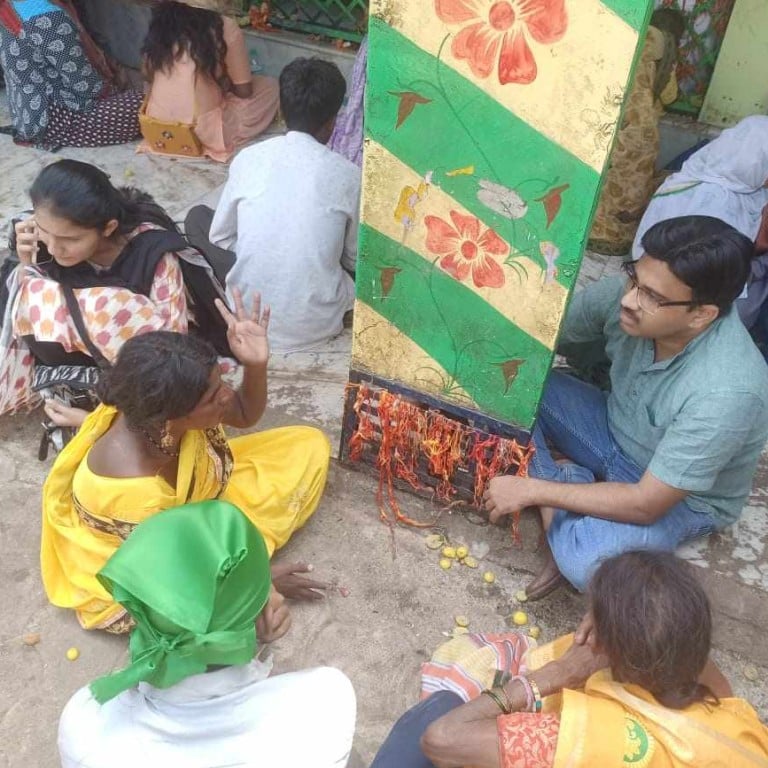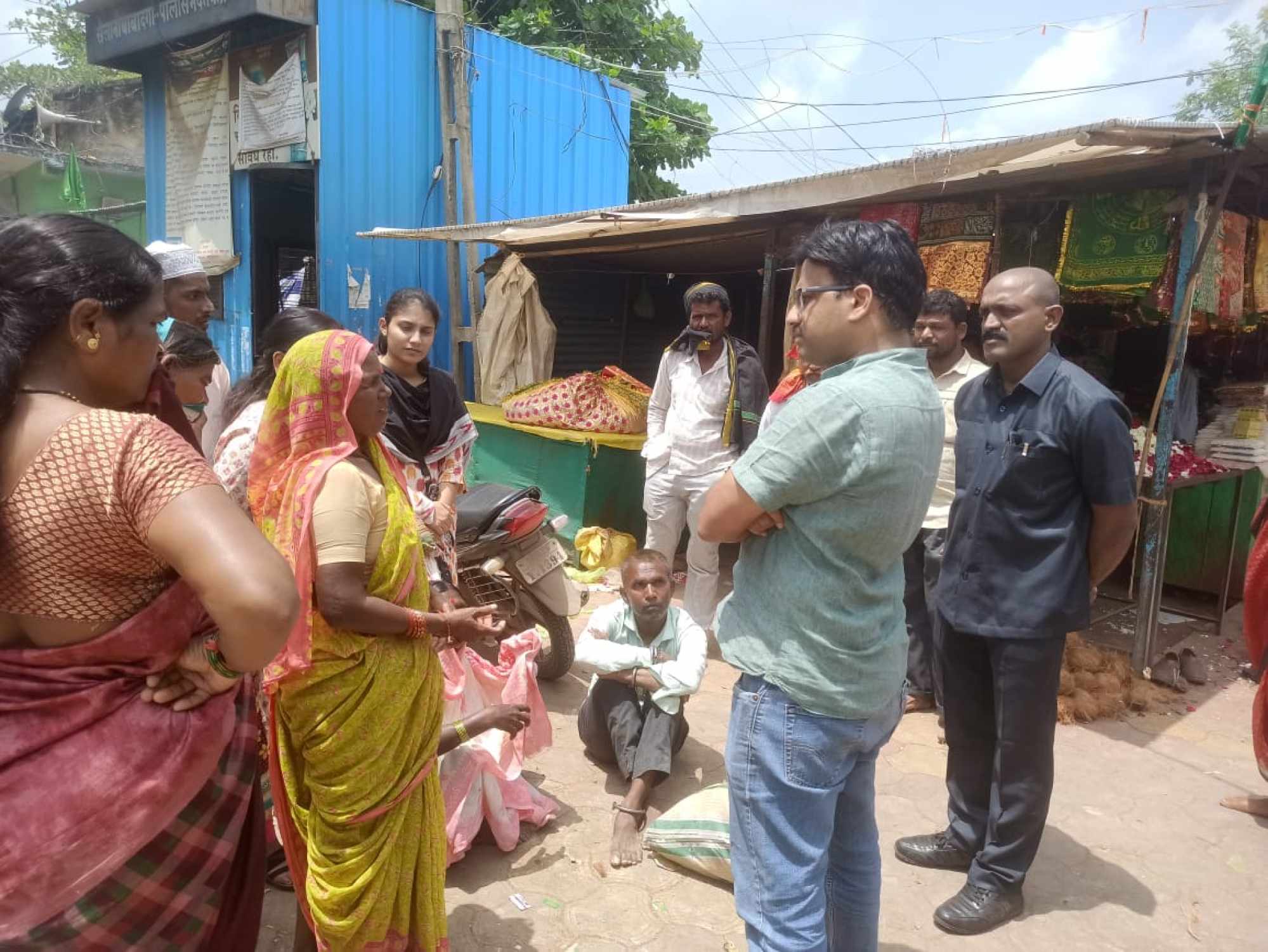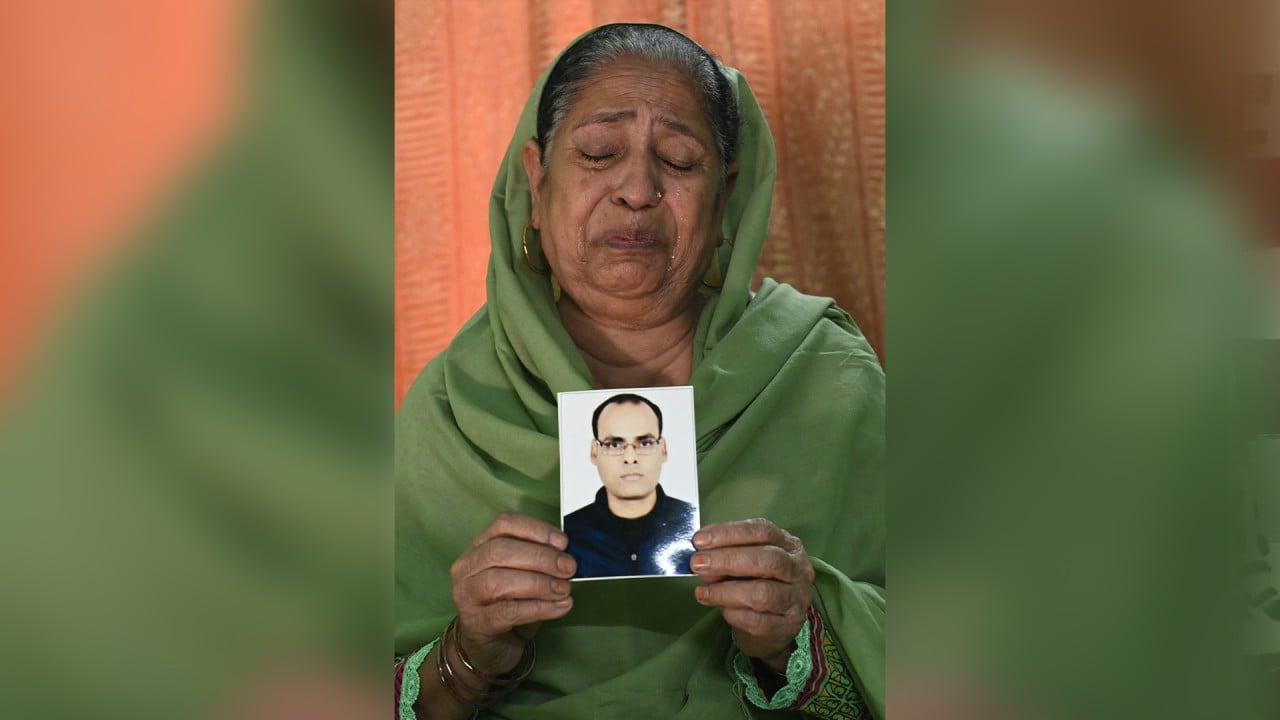
The Indian doctor fighting to protect people against harm and ‘entrenched beliefs’ of black magic
- Psychiatrist Dr Hamid Dabholkar grew up hearing his father rage against black magic practitioners who prey on poor and ignorant Indians
- But both rural Indians and educated people in big cities are equally susceptible to irrationalism and belief in fake godmen, he says
Frantic over their baby’s persistent cough, an Indian couple in Gujarat recently sought the services of a faith healer, who used a “hot-rod treatment”, in the latest public case of black magic in the country.
The two-month-old girl was rushed to hospital after the healer pressed a red-hot iron rod on her chest and stomach to remove evil spirits. She remains in an intensive care unit, where doctors say she is in a stable condition.
In Madhya Pradesh, two other infants were not as lucky. One of them was branded with a hot iron 20 times by an exorcist, and the other was burned 50 times in a separate case.
Unexplained death: the link between poor healthcare and Indian witch-hunts
Such stories only strengthen Dr Hamid Dabholkar’s resolve to educate people about the harms brought by so-called faith healers, fake godmen and their ilk.
“This hot-rod ‘treatment’ is common. The quack says someone has cast the evil eye on the child and it must be removed this way. This is a deep-rooted belief in villages,” said the 45-year-old psychiatrist.
Dr Dabholkar, who practises in the neighbouring state of Maharashtra, grew up hearing his father rage against black magic practitioners that prey on poor and ignorant Indians.
After his father was shot dead in 2013 while leading a march against superstition in Pune, Dr Dabholkar vowed to keep up the fight.
He recently opened a clinic in Parbhani to help victims. Anyone walking through the door, usually those who have tried black magic, will receive treatment, counselling and proper medication.

“A common case is parents concerned about their child’s odd behaviour. A fake healer tells them the child is possessed by an evil spirit and tells them to do ridiculous or harmful things,” he said. “My hope is that instead the parents will bring the child to me for proper treatment.”
But Dr Dabholkar pointed out that educated people in cities are just as prone to irrationalism and belief in fake godmen. Members of India’s elite attend the top universities abroad but consult astrologers, godmen, and other peddlers of hocus-pocus, including claims to cure cancer, he said.
Dr Dabholkar said he recently heard of a family in Nagpur city who beat their ill son so badly, on the instruction of a faith healer, that he died. “You have people living in towns, with mobile phones, active on social media and with access to doctors and yet they do things like this,” he said.
Even in recent years, a ‘Tomato Baba’ near Pune would have thousands of people lining up to see him to have his special tomato juice which he claimed could “cure” anything from diabetes and joint pain to cancer.
Diagnoses from black magic practitioners include accusing women of being witches, while in extreme cases, they recommend some children be offered as human sacrifices. People may also seek the advice of a holy man for relatively mundane events such as getting a job, reviving a failing business or fixing a wedding date.
Cow dung cocktails: why India can’t get enough of quack Covid-19 ‘cures’
To support the clinic, volunteers working with Dr Dabholkar’s organisation, the Andhashraddha Nirmoolan Samiti (Eradication of Blind Faith), visit villages to debunk superstitions and inform villagers of the clinic’s services.
Dr Dabholkar says that sensitivity is important when dealing with belief in superstition. “There is no point ridiculing patients. These are entrenched beliefs. Our doctors here understand the cultural context they are working in and make patients feel comfortable,” he said.
Often the patients he sees are not suffering from “possession” but psychiatric disorders such as schizophrenia, paranoia or psychosis. But the stigma around mental illness is such that their families do not seek medical help.
“It is culturally easier to say a woman is temporarily possessed by a goddess than to say she is psychotic,” he said.
Is this Indian city Asia’s next big medical tourism hub?
Thanks to his father’s strenuous efforts for a law to punish those who exploit people’s superstitions, the Maharashtra government passed the Anti-Superstition and Black Magic law in 2013, very soon after his murder.
The law criminalises black magic and other acts which may exploit people’s superstitions. But although black magic practitioners have been arrested under the law, Dr Dabholkar says its impact by and large has been negligible.
“When I see all the harm that’s done, I feel upset,” he said. “Just a little bit of knowledge could cure people. My grouse with these fake healers is that at the very least, whatever they do, they should refrain from causing harm.”


